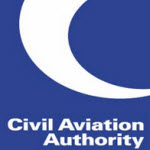CAA Stepping Up Protection Of Disabled Passengers Rights
- Written by Roberto Castiglioni

The UK Civil Aviation Authority recently became disabled passengers' complaints handler for England, Wales and Scotland; Sandra Webber, Director of Consumer Support, explains how the CAA plans to step up protection of disabled passengers rights.
Following a consultation held last year, the Home Office has reassigned PRM (passengers with reduced mobility) complaint handling from the Equality and Human Rights Commission to the Civil Aviation Authority.
Reduced Mobility Rights recently interviewed Sandra Webber, Director of Consumer Support at the CAA, to understand what disabled passengers can expect following this change.
Q. Earlier this year the Home Office announced the transfer of PRM dispute handling for England, Wales and Scotland from the EHRC to the CAA. Has a target date been set now?
A. Yes, the CAA became the sole complaints handler for England, Wales & Scotland in September.
One of the major complaints about the EHRC was the time frame in which complaints were handled, thus the following question to Mrs Webber.
Q. Whilst preparing to incorporate the new function has the CAA chartered quality standards for the dispute handling process such as response time?
A. The CAA is working towards setting quality standards for our response handling for complaints from members of the public about the aviation industry. However, because of the nature of PRM complaints – they are usually complex and can involve a number of different parties – the CAA will not handle these complaints in the same way as other aviation complaints. These will be handled by senior staff and, on a case by case basis, and may be given priority. But in general, as with other complaints, we expect passengers to complain to the airline or airport before contacting us.
Q. The CAA has been running a disabled passengers dispute handling service in parallel with the EHRC for a while. What has been learned through this first approach to the service, and which are the most common complaints received?
A. There was a short period – one or two months – when the CAA and EHRC both handled complaints. Overall the CAA has been handling complaints for about three months. In this time it has received about 40-50 complaints, not enough to identify trends as yet.
An average of one complaint every two days is quite significant, considering that disabled passengers who file complaints are a minority within all passengers who think their rights have been violated. The reason behind the low number of complaints is that only one out of six passengers with reduced mobility knows his rights, let alone has knowledge of how to file complaints.
Q. A recently published study unearthed that 5 out of 6 disabled passengers are unaware of their rights when travelling by air. How is the CAA planning to tackle this problem?
A. Across the board the CAA is determined to help people understand their rights in relation to air travel. Generally this involves promoting our role and the nature of the regulatory protection offered to air travellers through the mainstream and online media, and through briefing expert commentators on the situation so they are able to act as informed ambassadors for the services we provide.
This will be the same with PRM issues – we are currently planning a PR drive aimed directly at relevant media to raise awareness around our new complaints handling role and the regulatory protection afforded to PRMs generally. As we know that PRMs have a far better experience when they have informed their airline of their situation prior to travelling, part of this work will be to encourage people to be sure to speak to their airline or ticket agent at least 48 hours in advance of travel to ensure they are aware of their needs.
Lastly, we have also established a Disability Advisory Group - a forum where disability groups, consumer groups, Age UK, Department for Transport and the CAA can share data on the issues that most concern disabled passengers and PRMs about air travel.
Enforcement of disabled passengers’ rights remains a crucial problem. Unlike other European Countries, the UK government never set up administrative sanctions for violators. The CAA has, by its own admission, extremely limited enforcement powers.
The regulation protecting the rights of disabled passengers can only by enforced by criminal prosecution. "Unfortunately, [enforcement] powers are not very flexible or proportionate and make it difficult for us to take action," Dame Hutton, Chair of the CAA, told Reduced Mobility Rights one and half year ago. As we learn from Mrs Webber, there is no fast solution in sight.
Q. In 2011 we learned from the CAA’s Chair voice that enforcement of 1107/2006 was difficult to achieve due to present limited powers. What has changed since then?
A. We are working with Government to address the issue.
The Department for transport has been delaying action on the implementation of civil penalties since mid-2008. The CAA attempts to make the DfT deliver are now being followed by the EU Commission. "The [EU] Commission is closely following this issue and is, like you, of the opinion that this is highly advisable in order to have full respect of the Regulation," Siim Kallas, EU Transport Commissioner recently told Reduced Mobility Rights.
About the author
Founder and Editor-in-Chief of Reduced Mobility Rights, Roberto Castiglioni has extensive knowledge of PRM regulations and handling procedures, along with first-hand experience as a travelling companion and carer of a passenger with reduced mobility.
Roberto is a member of ESAAG. Chaired by the Hon. David Blunkett MP, the Easyjet Special Assistance Advisory Group, ESAAG, provides Easyjet with strategic guidance and practical advice on the evolving needs of passengers requiring special assistance. Easyjet is the largest airline in the United Kingdom by number of passengers carried.










